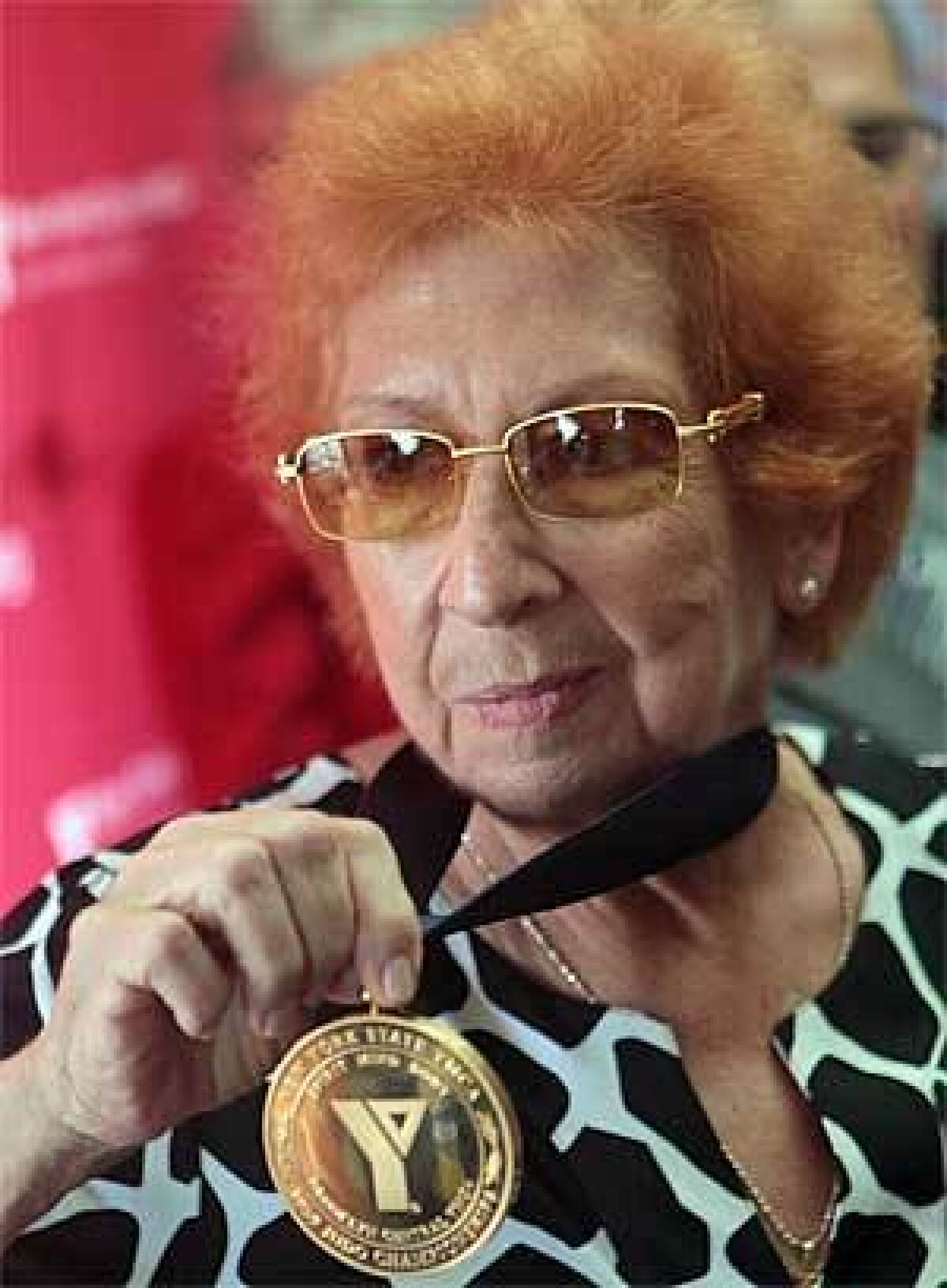Rena ‘Rusty’ Kanokogi dies at 74; U.S. women’s judo pioneer

- Share via
Rena “Rusty” Kanokogi, who once had to disguise herself as a man to compete in judo but whose perseverance was rewarded when she became coach of the U.S. Olympic women’s judo team, has died. She was 74.
Kanokogi died Saturday in New York after a three-year battle with leukemia, her daughter, Jean, told the Associated Press.
“Rusty inspired the sports world to think differently about the notion of women in competitive sports, and her legacy will live on for generations of athletes to come,” USA Judo President Lance Nading said in a statement.
Kanokogi helped create the first Women’s World Judo Championships in 1980 in New York City, mortgaging her home to cover the costs. She coached the U.S. Olympic women’s judo team in Seoul in 1988.
She was born Rena Glickman in 1935 in Brooklyn, near Coney Island. She learned judo from someone in the neighborhood, but her attempts to compete in the city’s judo clubs were met with resistance.
“They said no, you can’t compete, this is men’s only,” Kanokogi told the Asian Political News in 2008.
In 1959, she posed as a man in the New York State YMCA judo championships and won, but had to give back her gold medal after one of the organizers asked if she was a female.
“Had I said no, I don’t think women’s judo would have been in the Olympics,” she told the New York Times in February. “It instilled a feeling in me that no woman should have to go through this again.”
Jean Kanokogi told the Associated Press, “Her coach said, ‘Don’t bring any attention. Just pull a draw.’ I guess she couldn’t help herself, and she beat the guy.”
With no options to compete in the United States, Kanokogi traveled to Tokyo in 1962 to practice at the Kodokan, becoming the first woman at the main dojo with men. While in Japan she met her future husband, Ryohei Kanokogi, a black belt in judo, karate and stick-fighting.
They returned to the U.S. and started coaching judo and trying to build the sport for women.
“It was everything piece by piece,” she said of organizing the 1980 world championships in New York. “I didn’t care if I slept or ate. It was do or die.”
Men’s judo became an Olympic sport in the 1964 Games. Kanokogi threatened legal action if women’s judo was not treated equally.
Women’s judo joined the Olympics in 1988 with Kanokogi as U.S. coach.
She told the New York Times, “I knew they were ready to compete, so why shouldn’t they have the opportunity?”
Kanokogi received several honors, including last year’s Emperor’s Award of the Rising Sun, bestowed on foreigners who have had a positive influence on Japanese society. She also was the first woman to become a seventh-degree black belt.
Kanokogi worked for NBC as a commentator during the 2004 Olympics in Athens.
And in August, the Brooklyn YMCA awarded her the gold medal she had won in 1959.
“She was like a mother to me,” 1983 Pan American Games gold medalist Heidi Bauersachs-Trstensky told the New York Daily News earlier this year. “She’s the only one who pulled for us.”
In addition to her husband and daughter, Kanokogi is survived by her son, Ted Kanokogi, and two grandchildren.
Instead of flowers, the family has asked that donations be made to the Rusty Kanokogi Fund for the Advancement of Women’s Judo, administered by the Women’s Sports Foundation.
More to Read
Sign up for Essential California
The most important California stories and recommendations in your inbox every morning.
You may occasionally receive promotional content from the Los Angeles Times.









